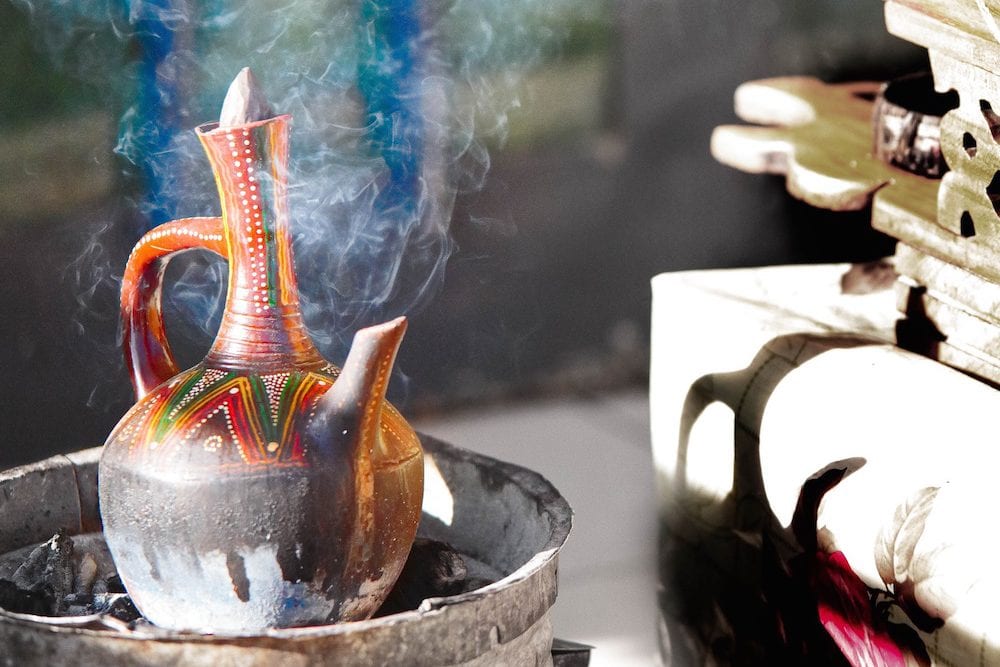Ethiopia – the birthplace of coffee and home to a unique coffee ceremony. The Ethiopian Coffee Ceremony is an age-old cultural tradition and a way of bringing together family and friends to bond over a cup of coffee. The ceremony is an experience that is not just about the coffee but also about the culture.
Meanwhile, this article gives recollections of the rich tapestry of the Ethiopian coffee ceremony and its significance in Ethiopian culture.
The Ethiopian Coffee Ceremony
Also, the Ethiopian coffee ceremony is a long-standing tradition that dates back hundreds of years. It is a time for women in Ethiopian households to come together and share in the coffee’s preparation. The ceremony comprises several steps, starting with the roasting of green coffee beans over a jiko (a small charcoal stove). The roasted beans are then ground by hand, using a traditional wooden mortar and pestle. They then placed the grounds in a jebena, a traditional clay coffee pot with a narrow spout. They heat water over a jiko, and they pour the heated water into the jebena, producing a rich, strong coffee that is served in small cups.

The Significance of the Ceremony
This Ethiopian ceremony is more than just a coffee-making process. It is a time for families and friends to come together, share stories, and bond. The Ethiopians consider coffee to be a significant part of their cultural identity and history, and the ceremony is a way of paying homage to their coffee heritage. The ceremony is also an essential social custom in Ethiopia, with an elaborate etiquette that is observed by all participants. The youngest person in the group serves the coffee first, followed by the oldest person.
The Art of Ethiopian Coffee
Ethiopian coffee is famous for its rich, deep flavor and aroma. The fertile highlands of Ethiopia provide the ideal growing conditions for coffee, and the country has become one of the world’s premier coffee-producing regions. Each region in Ethiopia grows coffee with a unique flavor profile, reflecting the local soil, topography, and climate. Farmers plant Ethiopian coffee beans in smallholder farms and harvest them by hand from local farmers. The Ethiopia Commodity Exchange then evaluated the beans’ quality, ensuring that each bag of coffee was of the highest possible quality.

Conclusion
The Ethiopian ceremony is a beautiful and unique cultural tradition passed down from generation to generation. It is a way of celebrating Ethiopian culture and bringing people together over a cup of coffee. At the heart of the ceremony is the art of Ethiopian coffee, a product of the fertile soils and high-altitude growing conditions in the country. Exploring the rich tapestry of the Ethiopian coffee ceremony takes you on an exciting journey back in time, allowing you to experience a delightful cultural tradition. This ceremony is a beautiful example of the way coffee brings people together, regardless of race, religion, or socioeconomic status.
As you sip your coffee, think about the significance of this remarkable tradition and the role of coffee in bringing people together.






